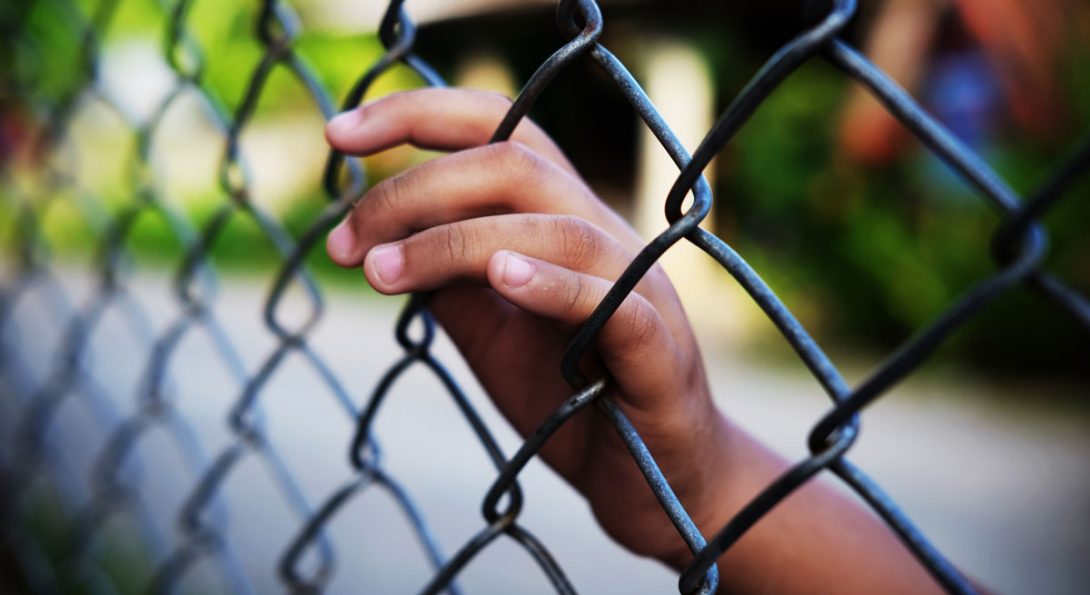From Adjudication to Matriculation: Helping Court-Involved Youth Return to School

Nationally, it has been estimated that one-third of youth in juvenile corrections facilities have a disability, and that nearly half of those youth have an emotional disturbance. Research also shows that youth with intellectual and developmental disabilities tend to commit more serious offenses, are at higher risk for second- and third-time offending, and enter the juvenile justice system at a younger age.
“Young people with disabilities may become involved in the juvenile justice system because of their vulnerability,” says Annette Johnson, chair of the school social work specialization at Jane Addams College of Social Work. “When they return to school, they don’t have a good support network and may end up in alternative schools, where they still don’t get the supports they need. These students are set on a path toward poor attendance and dropouts, and they often end up in poverty, or in the school-to-prison pipeline.”
Project LEAD
To help such young people, the Jane Addams College of Social Work is working in partnership with UIC’s Department of Special Education on a new program entitled Project LEAD (Leaders Enhancing outcomes for Adjudicated youth with Disabilities). The program will prepare special educators and school social workers with the knowledge and skills required to improve outcomes for adjudicated youth with disabilities in temporary detention center schools and in middle and high schools.
The first cohort of students in Project Lead, comprised of four MSW students from JACSW, and four students from the College of Education. JACSW students are in the front row, from the left, Olivia DeLeon-Rodriguez, Maureen van de Water, Corey Berdell-Brewer and Sean Prendiville (far right).
Over five years, 32 students from the College of Education and from the College of Social Work will enter into a year-long program that involves taking classes together, engaging in forums, seminars and workshops, and internship co-placements at Chicago Public Schools and the Juvenile Justice Division of Cook County Juvenile Courts. In addition to the year-long partnership, they will be supported for a period of one year as they enter the field (induction).
Dr. Lisa Cushing, associate professor at the College of Education and principal investigator on Project LEAD, notes that such a collaborative approach is unique. “This kind of intercollaboration between social work and special education has never before been undertaken. These practitioners will serve as point people for adjudicated youth, bridging the gap between juvenile justice and the educational system, and they need to know how to work together,” she says. “This collaboration is modeled throughout the program, ensuring that students are immersed in best practices from both disciplines.”
For example, the first cohort of students currently enrolled in Project LEAD have had the opportunity to collaborate in assessing youth who have been in detention and have probation officers. Cushing says, “This gives our students authentic hands-on experience in serving this population, working as a team in assessing social emotional, academic and behavioral needs.”
A Foundation for the Future
The goal of Project LEAD is to create a network of practitioners and scholars who will continue to refine evidence-based best practices for serving court-involved youth with disabilities. Ultimately, the project will launch a web portal for the public dissemination of research and practices to support adjudicated youth with disabilities in their return to school.
About JACSW’s involvement in the program, Annette Johnson says, “Project LEAD is a wonderful example of how social workers can be part of an interdisciplinary approach to improving outcomes for vulnerable populations. Graduates from Project LEAD will guide the field and the practice of working with adjudicated youth in Chicago and beyond.”
Project Lead has been completed, and was funded through a five-year grant from the U.S. Department of Education, Office of Special Education Programs (OSEP), administered by the UIC College of Education.